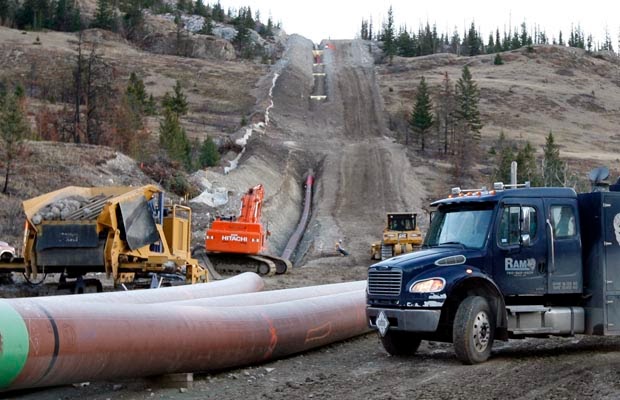
Northern Gateway pipeline now awaits federal approval
With 209 conditions that need to be met, the joint panel reviewing the Northern Gateway pipeline proposal has given the idea a green light, leaving the final decision in the hands of the federal government.
“After weighing the evidence, we concluded that Canada and Canadians would be better off with the Enbridge Northern Gateway project,” concluded the panel’s roughly 500-page report.
The final document is the product of 180 days of hearings in 21 communities across British Columbia and Alberta. The federal government now has 180 days to accept or reject the proposal with the 209 attached conditions, including the development of a protection plan for marine mammals, researching the cleanup of heavy oil and conducting emergency response exercises, which cannot be changed unless they are brought to the National Energy Board.
The pipeline would cost $7.9 billion and carry bitumen from the Alberta oil sands to the BC coast where tankers will ship the bitumen to Asian markets.
Natural Resources Minister Joe Oliver said the pipeline wouldn’t be approved unless it was safe for Canadians and the environment.
“The panel’s report represents a rigorous, open and comprehensive science-based assessment,” Oliver said in a statement.
“Now that we have received the report, we will thoroughly review it, consult with affected aboriginal groups and then make our decision. We also encourage everyone with an interest to take the time and review the report.”
While the project is recommended for federal approval, the BC government has stated its opposition unless 5 conditions are met.
- Passes Environmental review
- Develop world-leading marine oil spill prevention and response strategies
- Develop world-leading land oil spill prevention and response strategies
- Respects First Nations treaty rights and gives them opportunities
- BC receives a fair share of fiscal and economic benefits
Meanwhile, 130 aboriginal bands have signed a declaration against the project.
NDP leader Thomas Mulcair voiced his party’s opposition to the pipeline last Wednesday.
“This is not going to be allowed to go through without a peep,” Mulcair said, accusing the Conservatives of neglecting aboriginal rights.
“You can no longer impose these things from the top down. This is another era. You need social adhesion, you need to work with people. You can’t just bark at them and say, ‘This is going through.'”
Liberal leader Justin Trudeau said in October that while he supports the keystone XL project, he is against the Enbridge Northern Gateway pipeline project.
“There’s no question we need to get our energy resources to the Pacific. I’ve looked at the facts. I’ve looked at the resistance to it. I’ve looked at the politicization of it and I just don’t see Northern Gateway as it stands being a viable proposal,” Trudeau said.
Enbridge started negotiating with the aboriginal communities in 2005, well before the project was proposed in 2010. The federal government said it would consult aboriginal communities once the panel’s report has been completed.
Approval of the project would debut construction in 2014 leading to its operation in 2018.
It is no question Canada’s untapped oil-sands will be of great value in the near future as oil supply on the market continuously gets swallowed by growing demand. However, the modern world is tending toward cleaner energy in an effort to lower the overall carbon footprint and has lead to the creation of new markets. Where do you stand on the Northern Gateway pipeline?



